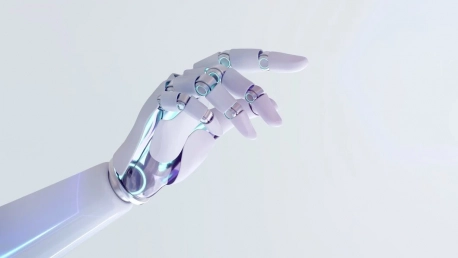The rise of low-code application development has been a game changer, making it easier for people without deep technical skills to create sophisticated software. This significant shift has democratized software creation, allowing more individuals and organizations to participate in innovation. Now, the emergence of generative AI (GenAI) is set to further revolutionize this space.GenAI promises to transform low-code development by introducing powerful capabilities that automate and enhance various aspects of the software creation process. This has the potential to improve productivity, reduce errors, and make it even easier for non-technical users to develop complex applications. The integration of GenAI with low-code platforms can lead to a new era in which creating software is more accessible than ever before.This fusion of GenAI and low-code development is poised to have profound implications for the industry. It could disrupt traditional development roles, change the economics of software creation, and spawn new categories of applications. As the technology matures, we’re likely to see a surge in innovative solutions developed at an unprecedented pace.As this amalgamation progresses, stakeholders in the tech industry need to pay close attention. The blend of GenAI with low-code development isn’t just a passing trend; it’s a trajectory that will define the future of how we create, deploy, and use software.
The Evolution of Low-Code in the Age of GenAI
Since its inception, low-code technology has challenged traditional software development methodologies by providing a platform for rapid app creation with minimal hand-coding. This has empowered a new breed of developers to implement solutions without detailed knowledge of programming languages. With GenAI entering the fray, the potential to shift the paradigm further is significant. Early adaptations of GenAI have shown remarkable progress in understanding natural language to generate functional code, offering an intriguing glimpse into future possibilities.
GenAI-Powered Low-Code Platforms: Disruption or Synergy?
Amid the rapid technological advancement, a debate simmers regarding GenAI. Could these intelligent systems render low-code platforms redundant, or will they rather enhance and extend their capabilities? On one side of the spectrum, there are those who predict that GenAI’s full code-generating ability could outmatch the simplicity and efficiency of low-code platforms, essentially making the latter obsolete.In contrast, there is a belief that GenAI will complement low-code platforms, propelling them to new heights. This view holds that the convergence of both technologies will create a powerful ecosystem where low-code provides the structural foundation and GenAI serves as the intelligent engine, driving innovation and efficiency. As the complexity of applications developed through GenAI grows, the need for low-code platforms to manage and maintain these systems becomes even more crucial. This symbiotic relationship is expected to grow, weaving GenAI into the fabric of low-code development.
The Shift in Developer Skillsets
The integration of GenAI into software development tools portends a notable shift in developer skillsets. As development processes become more automated, the premium will be on understanding and leveraging GenAI capabilities rather than traditional coding expertise alone. The burgeoning intersection of AI and low-code necessitates a different kind of developer—one who is adept at formulating solutions with GenAI tools.
GenAI’s Impact on the Software Development Lifecycle
The incorporation of GenAI into the software development lifecycle promises to refine and enhance the process at each stage. Tools like GitHub Copilot exemplify how GenAI can significantly boost developer productivity by generating code suggestions. Such tools aid developers in writing code faster, reducing errors, and finding more efficient ways to implement features.
The Implications for Software Quality and Governance
Making application development more accessible through GenAI integrations in low-code platforms raises important questions about software quality and governance. Empowering a wider range of individuals to create applications could inject a new level of variety and innovation into the tech ecosystem but might also introduce risks related to quality and security.
Partnering GenAI and Low-Code: The Route to Innovation
When considering the evolution of software development through the lens of GenAI’s rise, its alliance with low-code platforms represents an innovation frontier similar to historical leaps seen in sectors like manufacturing and electronics design. This partnership paves the way for unparalleled applications and improvements to how software is conceptualized, developed, and deployed.The future of low-code development is not just an extension of its current trajectory but a recalibration towards a more intelligent, automated, and accessible process. As GenAI continues to permeate every facet of software development, its inevitable interlacing with low-code methodologies signals a seismic shift for the industry and an exciting new chapter for developers and businesses alike.









